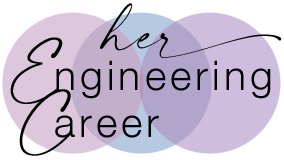Episode Transcript
You’re aware of the kinds of projects you’re working on and how they relate to your employer’s expectations of you as an engineer. I mean, you know how your work is helping the mission and how it’s helping you.
If you haven’t already, you’re gonna realize how important this is when it comes to promotion time.
This episode is about non-promotable work. We’re gonna look into what that means and how to manage it. How to manage it with respect to your workload and your career progression.
You’ve been focused on doing great work, meeting your deadlines, and getting along with people. You’ve taken on the tasks you were asked to do. You’re efficient and effective.
For sure it’s your turn for a promotion.
So why are you getting passed over? Why are others getting promoted ahead of you? The answer is not in the quality of your work. Or your talent. Or your determination.
But there’s a good chance you’re spending too much time on non-promotable tasks.
The Difference Between Promotable and Non-Promotable Engineering Tasks
Promotable work has a specific tie to the organization’s mission. It’s clear that by accomplishing this kind of work, you’re making a contribution that moves the company forward.
Promotable work usually requires specific skills or a unique talent. In other words, not just anybody can perform it. And promotable work often provides you with good visibility and recognition.
On the flip side, non-promotable work is not needed to meet the mission. It’s usually necessary work that needs to be done, but it’s peripheral to the mission.
With non-promotable tasks, while you may be lauded for doing great work, there’s nothing to show that you’ve had any effect on the organization’s progress. And the visibility you get, if any, is limited.
From my former job at the lab, I can give you some examples of non-promotable tasks. Like:
- Giving lab tours
- Technical recruiting
- Holiday party planning
- Awards selection
- Security liaison
- Coordinating employee resource groups
- Hosting technical seminars.
All of these tasks are important. They’re needed to keep the organization running smoothly. But are they tied to the lab’s mission? Indirectly, yes. But not directly.
When It’s Okay for Engineers to Take On Non-Promotable Tasks.
Does this mean you should never take on these tasks? No. But when you do this work, realize that it’s not contributing to your promotion potential.
And be sure there’s another kind of benefit to you for doing this work. For example it might:
- Give you more exposure
- Connect you with influential people
- Teach you an important new skill
- Or allow you to work somewhere that fulfills part of your career vision.
Doing non-promotable work just “for fun” or “something different” is not a good enough reason by itself. Doing non-promotable work because your boss asked you to is not a good enough reason by itself.
This is the part you need to manage.
Managing Your Engineering Workload for Promotion Potential
Somehow women engineers end up having a disproportionate amount of non-promotable work. Sometimes we’re asked to do it more often than men are. Sometimes we’re expected to do that kind of work. Sometimes we’re not good at saying no.
But you can manage this with these 3 tips:
- Make sure your workload consists primarily of promotable tasks.
Non-promotable tasks should not be a significant portion of your workload. Instead your engineering workload should be largely comprised of promotable tasks that get priority.
- Don’t be fooled by the offer.
You might not realize a task is non-promotable because you were specifically asked to do it by an influential person.
Don’t be fooled because someone sought you out as a good candidate. Don’t assume it’s a task that, if done well, will get you places.
- Say no.
If you can’t see how a task serves the mission, your boss can’t explain how it does, and it offers minimal benefit to you, there’s 3 strikes. Say no to the task.
Or (going back to number 1) if you’re already devoting significant time to a non-promotable task, don’t take on another one.
Early in your career it’s sometimes more important to just do the tasks you’re asked to do. To learn from the assignment and not question it.
But once you have a good foundation in your engineering career, it’s more important that you balance your own workload. Ensure the work you do aligns with your vision and gets you to your goals.
I love seeing my clients evolve to owning their workloads and taking charge of their engineering careers. You can sign up for a strategy session with me and we’ll work on an approach to that transition.
In the meantime, take a quick assessment of your engineering work and make sure it’s not overloaded with non-promotable work. Be aware and put some boundaries in place so that, come promotion time, you don’t get left behind.
Next time on Her Engineering Career Podcast, we’ll explore how to succeed in engineering beyond the critical point so you can realize your dream career. I hope you’ll join me for Episode 81.

